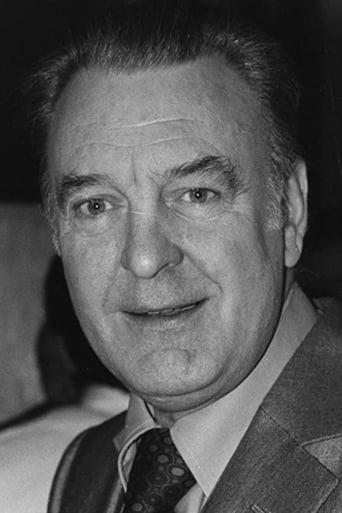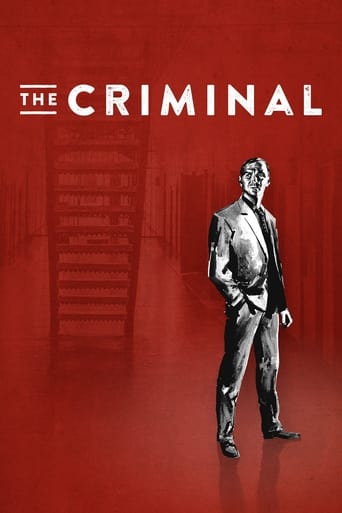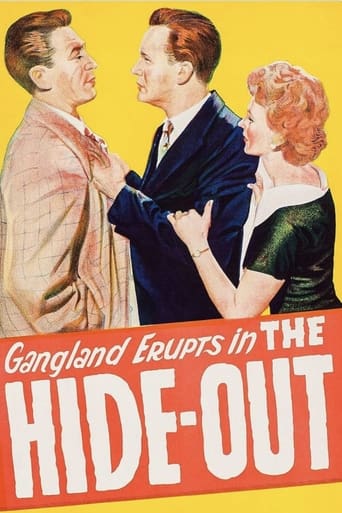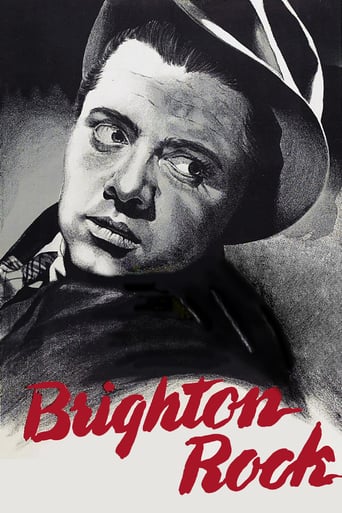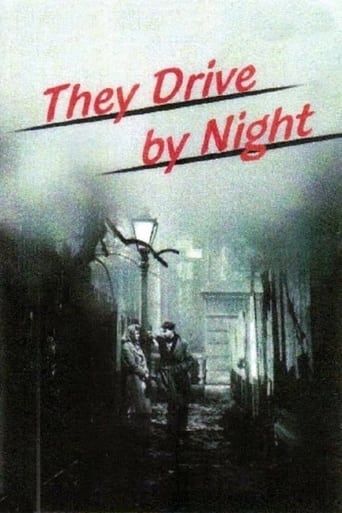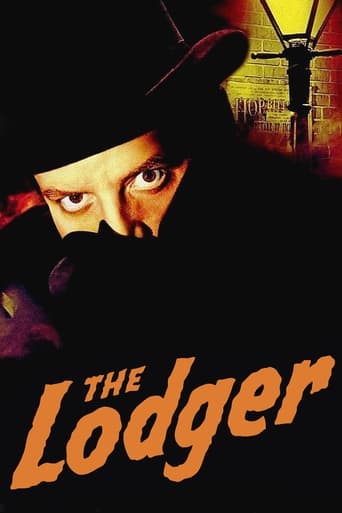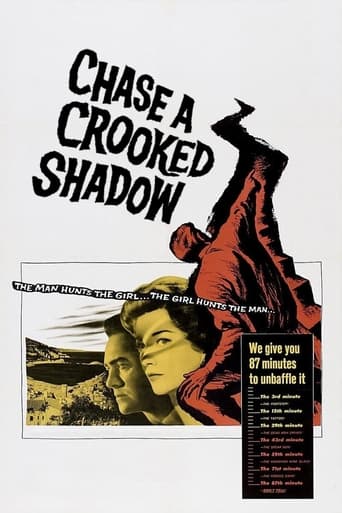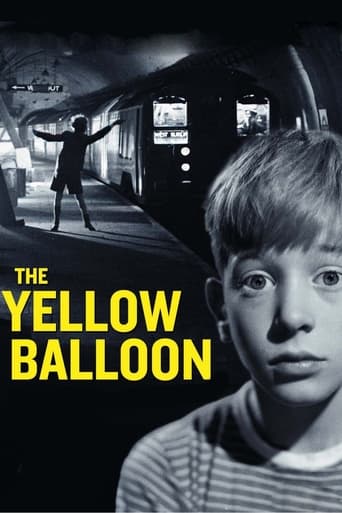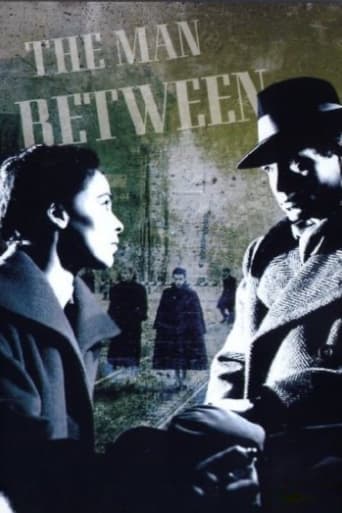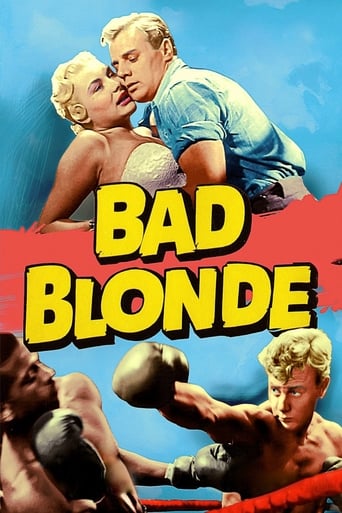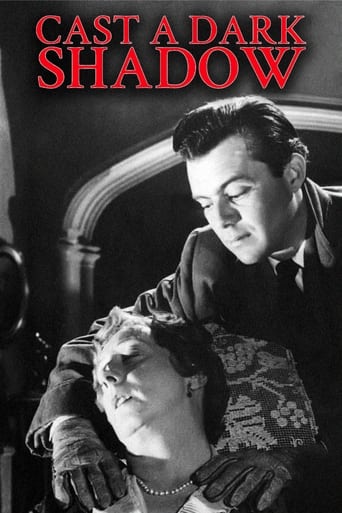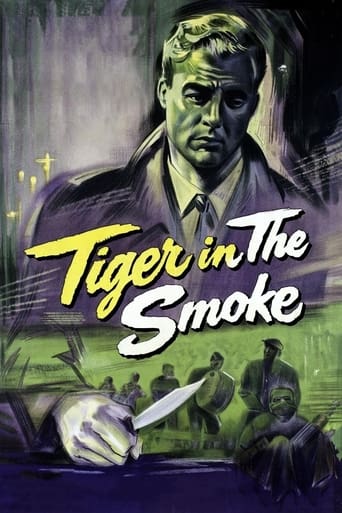
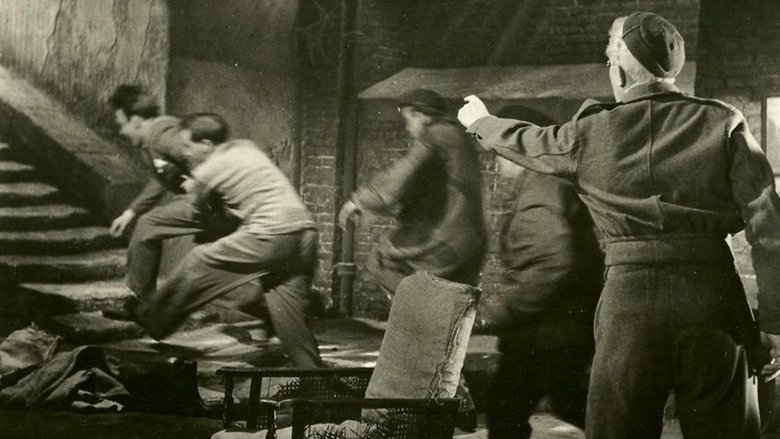
Tiger in the Smoke (1956)
In wartime, a young officer is killed during a raid to kill a German general at the house that used to belong to his grandmother. Before he dies he talks about a treasure that was hidden there. Several years later, the members of that group are still together as a street band living in a cellar. The last of the gang, who was chosen for his skills as a ruthless killer, escapes from prison in a rampage of killing and, obsessed with the treasure, takes the gang to France to recover it.
Watch Trailer
Cast


Similar titles
Reviews
Just perfect...
hyped garbage
best movie i've ever seen.
Great example of an old-fashioned, pure-at-heart escapist event movie that doesn't pretend to be anything that it's not and has boat loads of fun being its own ludicrous self.
This is a very tricky intrigue which no one can make head or tail of to begin with, as no one can understand why anyone would try to mask as a war casualty long after the war is over, leading to constantly denser fog of a mysterious intrigue involving buskers, who actually lead the perplexing events - they are the chief charm of the film, although there are many such, amazing characters above all, Laurence Naismith as the canon, Bernard Miles as the gang leader, Kenneth Griffith as Crutches, and some fabulous old ladies, Beatrice Varley as the unfathomable Lucy Cash for one. Donald Sinden is the leading male, but although a good reliable actor, he always plays himself and was never very versatile. Muriel Pavlow is better. But the intrigue is the main thing.The lurid photography adds a special flavour to the film, - as the kidnapped victim is dragged away his despair is reflected in the photography of all the neon signs that are passed, the camera's way of following the murderer gives him some mythic magic until he finally appears, and so on. This film is full of tricks, the action is very dense and concentrated and horribly exciting until the mystery is cleared, - and then follows a cliffhanger.Much underrated, this is a film that deserves some attention.
A young war widow has gone on with her life, falling in love with an attractive man. Strangely, she begins to receive disquieting messages that suggest her husband might be still alive. Who would want to perpetrate such a cruel hoax on a blameless citizen ? And why ?This is a thriller with an enormously original intrigue - as it should be, since it is based on Margery Allingham's marvelously clever and inventive novel of the same name. The movie is at its evocative best when describing a London shrouded in an oppressive smog. It's a world turned dark and grey, where vast blankets of polluted fog fill the streets, to the point where people can't find their houses and dogs can't recognize their masters. Every now and then one can catch a glimpse of some disquieting scene, such as a group of raddled, unhinged veterans moving serpent-like towards ever grimmer destinations. ("Tiger", by the way, is to be commended for its bravery in describing the long-term human cost of war. It's easy for authorities and politicians to say "John Smith survived the war and re- entered civil life", but what if John Smith, upon his return, discovered that he had lost his job, neighborhood and family ? Or what if the horrors of war had coarsened and unhinged him so badly that he became a danger to himself and to others ?) The smog, of course, isn't just an environment in which wicked things happen : as an air pollution problem verging on a disaster it is a wicked thing itself, looking for babes and innocents to devour. Still, I'm not entirely sure that "Tiger" succeeds in capturing the tone of Allingham's book, which was a skillful mix of the mundane and the grotesque. I need to add, immediately, that filming the book can't be easy : it must be as difficult as trying to bottle the elusive scent of a rare mountain flower. As a result some of the scenes fall flat or sound strangely off, such as the discussion between a kind, possibly even saintly canon and his attacker. There is also a sequence involving a hazardous and torturous climb over some rocks. Here the problem seems to be technical in nature ; it's not hard to imagine a bad-tempered crew trying to lug heavy equipment over an ungrateful surface. One can almost hear an aggrieved voice saying : "Go on, sunshine, thesp as much as you want, but stretch that leg two inches more to the left and it's bye-bye to an Astrolux-XZ-350, and it won't be me who's going to pay a thousand pounds out of his own pocket". The effect of this sequence, predictably, is less than blood-curdling.However, the movie is a useful introduction to the delightful novels of Allingham, who was one of the great Ladies of Crime. In her own way she was fully the equal of luminaries such as Agatha Christie and Dorothy Sayers.
Up till the half way mark this is an absorbing thriller.Then we are finally introduced to Johnny Havoc.Here is a man who has just broken out of prison.His hair is neatly combed,clean shaved,with a suit and tie and nice clean raincoat.A bit unlikely.The performance of Tony Wright then completely unbalances the film.We then have a scene in the church between Wright and Naismith which is both silly and illogical.Why would anyone disclose to a homicidal maniac the location of the treasure was seeking and then still still waiting to be stabbed?The climax is to say the least ill conceived and gives one the feeling of anti-climax.Donald Sinden isn't able to say too much as his mouth is taped shut for much of the film. Incidentally the year this film was made the government passed the Clean Air Act and as a result the smogs shown in this film became a thing of the past.
Pretty good movie this.The adapters very sensibly completely omitted the vapid Albert Campion and the pallid Amanda. As usual with Margery Allingham, they are entirely redundant to the plot, and I've never found either of them even slightly credible.The ending shows the British cinema's usual utter inability to deal with landscape.


